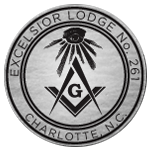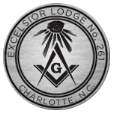FAQ
What’s A Mason?
That’s not a surprising question. Even though Masons (Freemasons) are members of the largest and oldest fraternity in the world, and even though almost everyone has a father or grandfather or uncle who was a Mason, many people aren’t quite certain just who Masons are. A Mason is simply a man who is a member of a Blue Lodge (regular Masonic Lodge). To become a member, he must solicit a brother for membership, be eligible, be elected by the membership, and then stand fit for the degrees in Masonry (ceremonies conducted within the Lodge).
What’s Masonry?
Masonry is the oldest fraternity in the world. No one knows just how old it is because the actual origins have been lost in time. Probably, it arose from the guilds of stonemasons who built the castles and cathedrals of the Middle Ages. Possibly, they were influenced by the Knights Templar, a group of Christian warrior monks formed in 1118 to help protect pilgrims making trips to the Holy Land.
In 1717, Masonry created a formal organization in England when the first Grand Lodge was formed. A Grand Lodge is the administrative body in charge of Masonry in some geographical area. In the United States, there is a Grand Lodge in each state and the District of Columbia. There are about 13,200 lodges in the United States.
If Masonry started in Great Britain, how did it get to America?
“In the spring of 1658 Mordecai Campannall, Moses Packeckoe, a man named Levi and others totalling 15 families arrived in Newport, Rhode Island, from Holland. They brought with them the first three degrees of Freemasonry which 150 of these new Americans worked in the home of Mordecai Campannall for 84 years.” – (Brother Zeb, p. 22)
What’s a Lodge?
The word “Lodge” means both a group of Masons meeting in some place and the room or building in which they meet. Masonic buildings are also sometimes called “temples” because much of the symbolism Masonry uses to teach its lessons comes from the building of King Solomon’s Temple in the Holy Land.
If you’ve ever watched C-SPAN’s coverage of the House of Commons in London, you’ll notice that the layout is about the same. Since Masonry came to America from England, we still use the English floorplan and English titles for the officers. The Worshipful Master of the Lodge sits in the East. “Worshipful” is an English term of respect which means the same thing as “Honorable”. He is called the Master of the Lodge for the same reason that the leader of an orchestra is called the “Concert Master”, which, in Italian, is maestro.
Masonry does things in the World?
Masonry teaches that each person has a responsibility to make things better in the world. Masonry is deeply involved with helping people – it spends more than $ 1.4 million dollars every day in the United States, just to make life a little easier. And the great majority of that goes to helping people who are not Masons. Some of these charities are vast projects, like the Crippled Children’s Hospitals and Burns Institutes built by the Shriners. Also, Scottish Rite Masons maintain a nationwide network of over 100 Childhood Language Disorders Clinics, Centers and Programs.
Masonry does things “inside” the individual Mason?
“Grow or die” is a great law of all nature. Most people feel a need for continued growth as individuals. Masonry reminds its members over and over again of the importance of these qualities and education. It lets men associate with other men of honor and integrity who believe that things like honesty, compassion, love, trust, and knowledge are important.
What’s a degree?
A degree is a stage or level of membership. It’s also the ceremony by which a man attains that level of membership. There are three, called Entered Apprentice, Fellowcraft, and Master Mason. The degrees are plays in which the candidate participates. Each degree uses symbols to teach, just as plays did in the Middle Ages and as many Theatrical productions do today.
Why is Masonry so “secretive”?
It really isn’t secretive, although it sometimes has that reputation. Masons certainly don’t make a secret of the fact that they are members of the fraternity. We wear rings, lapel pins and tie clasps with Masonic emblems like the Square and Compasses, the best known of Masonic signs which, logically, recall the fraternity’s early symbolic roots in stonemasonry. Masonic buildings are clearly marked and are usually listed in the phone book. Lodge activities are not secret-picnics and other events are even listed in the newspapers (or on the Internet like this one).
Is Masonry a religion?
The answer to that question is simple: NO.
We do use ritual in meetings, and because there is always an altar or table with the Volume of the Sacred Law open if a Lodge is meeting, some people have confused Masonry with a religion, but it is not. That does not mean that religion plays no part in Masonry-it plays a very important part. A person who wants to become a Mason must have a belief in God. No atheist can ever become a Mason.
Meetings open with prayer and a Mason is taught as one of the first lessons of Masonry that one should pray for divine counsel and guidance before starting an important undertaking. But that does not make Masonry a ‘religion’.
Masonry encourages every Mason to be active in the religion and church of his own choice. Masonry teaches that without religion a man is alone and lost, and that without religion, he can never reach his full potential. But Freemasonry does not tell a person which religion he should practice or how he should practice it. That is between the individual and God.
How does a Man become a Mason?
Some men are surprised that no one has ever asked them to become a Mason. They may even feel that the Masons in their town don’t think they are ‘good enough’ to join. But it doesn’t work that way. For hundreds of years, Masons have been forbidden to ask others to join the fraternity. We can talk to friends about Masonry. We can tell them about what Masonry does. We can tell them why we enjoy it. But we can’t ask, much less pressure, anyone to join.
When a man decides he wants to be a Mason, he asks a Mason for a petition or application. He fills it out and gives it to the Mason and that Mason takes it to the local lodge. The Master of the Lodge will appoint a committee to visit with the man and his family, find out a little about him, and why he wants to be a Mason, tell him and his family about Masonry, and answer their questions. The committee reports to the Lodge and the lodge votes on the petition. If the vote is affirmative – and it usually is – the lodge will contact the man to set the date for the Entered Apprentice Degree. When the person has completed all three degrees, he is a Master Mason and a full member of the fraternity.(from the Masonic Information Center, Silver Spring, Maryland)
IF YOU HAVE MORE QUESTIONS ABOUT FREEMASONRY OR OUR LODGE CONTACT US BY CLICKING HERE


